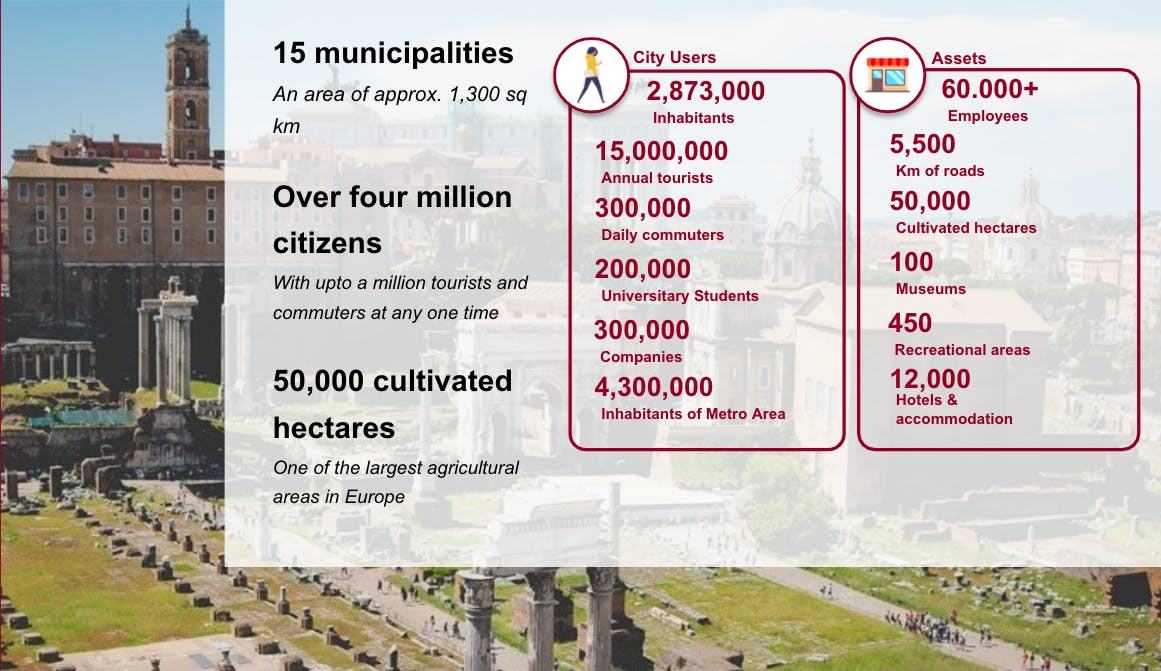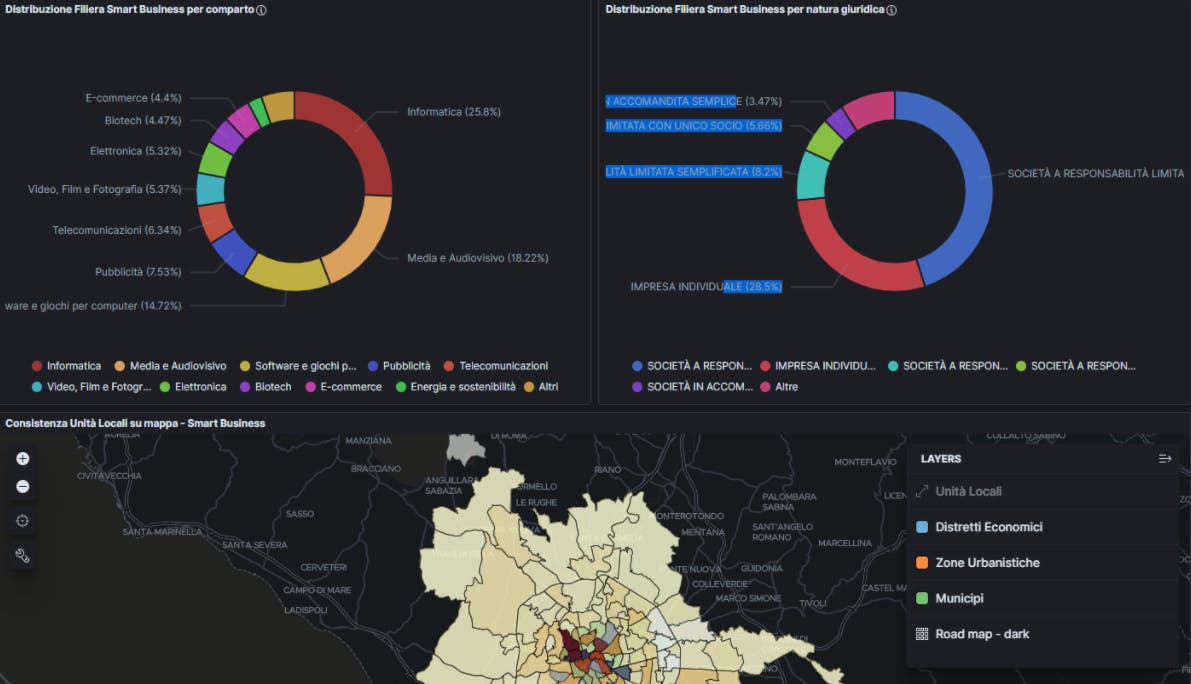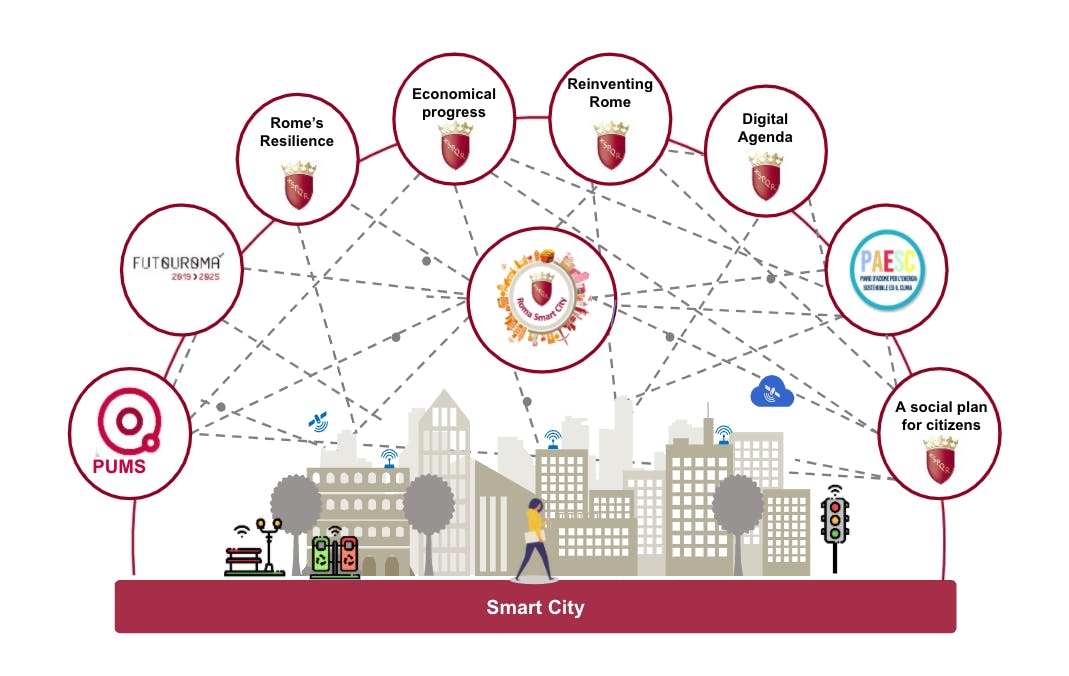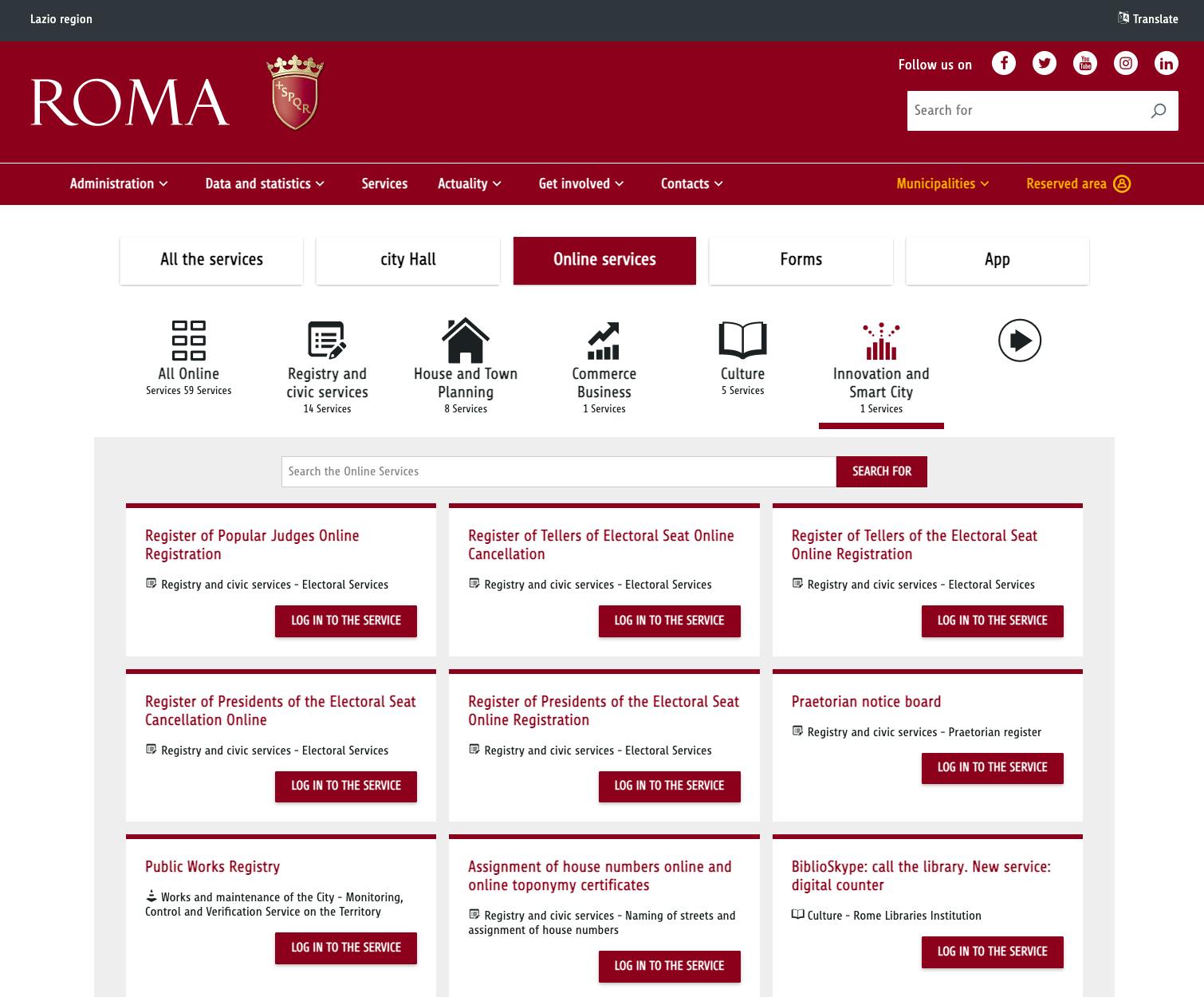The Eternal Smart City Powered by Roma Capitale and MongoDB

INDUSTRY
PRODUCT
USE CASES
Single View
CUSTOMER SINCE
A place of warm charm & elegant beauty
Rome is a place many know and love for its artistic heritage, warm charm, and elegant beauty. It’s the architecture, the culture and the food that rightly make it one of the world’s most intriguing places. Like any ancient city, however, it has modern needs to transform, not least because more than four million citizens, students, and tourists live, learn, and explore in this bustling, complex place. It all puts pressure on the hundreds of services that keep the city moving every day. Run by Roma Capitale— the local government body — these services and systems needed to evolve and to keep pace with the demands of its people. Updates across technology, digital and data services would offer new opportunities for all. Yet, turning the eternal city into a smart city would be by no means an easy task.

Serving the needs of four million citizens and tourists
It is Raffaele Gareri who leads this digital transformation charge. He’s an engineer who’s passionate about how technology can change and improve lives. “Rome has always held a strong sense of responsibility and service to its people,” said Gareri. “With almost four million citizens and a million tourists and commuters at any one time, the city must be able to provide a whole host of statutory, administrative, and financial services. We pride ourselves on that.”
to its people.”
Raffaele Gareri, Development Manager, Roma Capitale

Roma Capitale has led local initiatives across the city for more than 10 years now and has helped enhance environmental assets, improve economic and social programmes, and elevate the city’s urban development. “But we needed to do more and to improve our services. We had to get smarter in our approach for the people of Rome,” said Gareri. To do this, the team first needed to build a centralised data platform for the city a vast ecosystem that was capable of ingesting and housing huge amounts of disparate data. It would allow for much simpler and quicker insights and to help drive these new services.

easy task.”
Building a modern data platform for an entire city
Considering its small team and ambitious target, Roma Capitale began scouting for help. To build a data management platform of this kind required a solution that had flexibility, scalability, and a cloud-first approach.
“Our idea for the city data platform project held four key pillars,” shared Gareri: “User centricity (think: our citizens, tourists, students, and workers), sustainability, data sharing, and accuracy. We had to get all of these pillars correct to ensure the most adequate data system.”
One of the first steps was to modernize the city’s content and document management system (known in Italian as GED - Gestione Elettronica Documentale). It's a system more than two decades old that houses all of the city’s data. It was originally built on a proprietary relational database and was difficult for the engineers to maintain and work from. The data was set in a rigid, inflexible data model and that meant the team couldn’t easily capture insights.
Gareri then engaged MongoDB.
“MongoDB impressed us immediately with its high scalability and flexible data model,” said Gareri. “With MongoDB, we now had the opportunity to manage data in a more intuitive way. This made a big difference. For the first time, we were able to work with a variety of data types (transport details, legal documents, welfare records, etc.) and achieve excellent performance.”
Raffaele Gareri, Development Manager at Roma Capitale

The ancient city turned smart city
It’s hard to fathom just how much data four million citizens can create. Information that when left in silos can only mean so much but when integrated into a holistic system can turn into actionable insights.
“Precisely with MongoDB, we set about building a magical mix of data: a single view of all from different sources and all in different forms,” said Gareri. “We needed to do it in a way that ensured efficiency and productivity of all our operations — an ecosystem that would move at the speed of our city."
By integrating millions upon millions of data points on one platform, the team could now query and consult them all in real time. It would eventually help them develop applications much quicker and allow Roma Capitale to get the information to citizens for improved civic participation. This aspect of efficiency and speed turned out to be critical when the Coronavirus pandemic struck Italy in March 2020. During those trying times (and still to this day), data availability across MongoDB meant services such as healthcare and welfare were much more efficient and effective. Roma Capitale could access a vast array of queryable, clean, and readable data in real time that helped inform everything from personal care needs to business logistics.
Raffaele Gareri, Development Manager, Roma Capitale

Today, Roma Capitale’s new data ecosystem manages more than 110 million documents (with 10 million more documents being added per year). That’s in excess of 50 TB of data, used by thousands of users, online services, and applications across the GED system. It led Rome to jump from 15th place to 4th in the 2020 Global Smart Cities ranking.
Together with MongoDB, Roma Capitale has been able to transform back-end infrastructure systems and services to better enable citizens and improve the efficiency of the city’s operations.
Gareri and the Department of Digital Transformation now have their sights set on expanding the project with an initiative named “Casa Digitale del Cittadino” (Citizen’s Digital Home). It’s a concept that will seamlessly connect the MongoDB data infrastructure to front-end user-friendly applications — putting new opportunities into the hands of Rome’s citizens, businesses, and tourists.
Gareri concluded, “Soon all citizens will be able to monitor and track the progress of their personal documentation and applications through an interactive dashboard. The web-based experience will be smart, easy to access and available to everyone. With a strong self-service component, all functionalities will be integrated with SPID [the acronym for the Italian digital citizen identification tool].”
Rome has always been a city of transformation and that will never change. The once ancient city is now on its way to being a smart city of the future. Today it holds modern opportunities for its citizens, its businesses, and its tourists all the while maintaining that renowned artistic heritage, warm charm, and elegant beauty.